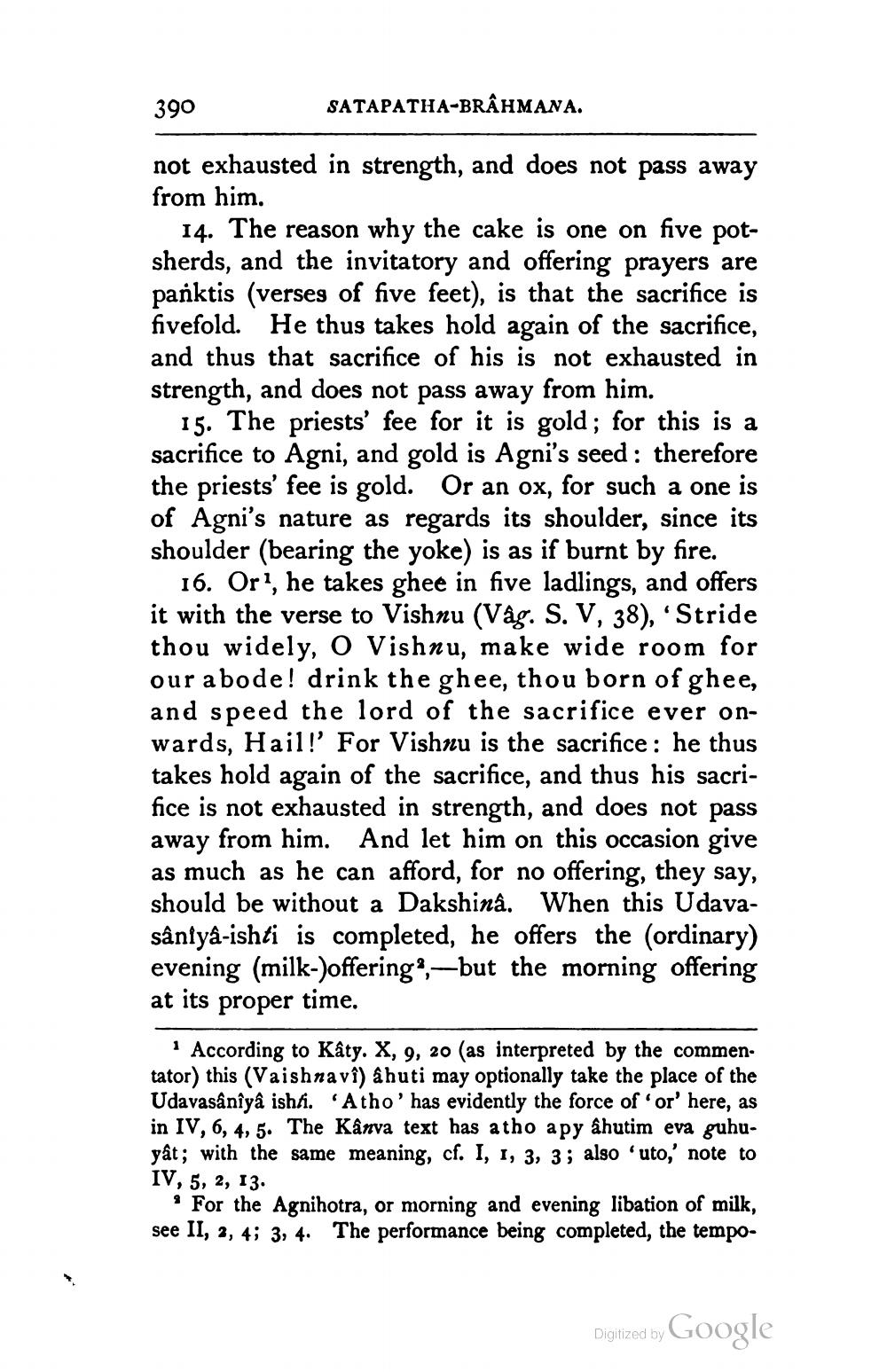________________
390
SATAPATHA-BRAHMANA.
not exhausted in strength, and does not pass away from him.
14. The reason why the cake is one on five potsherds, and the invitatory and offering prayers are panktis (verses of five feet), is that the sacrifice is fivefold. He thus takes hold again of the sacrifice, and thus that sacrifice of his is not exhausted in strength, and does not pass away from him.
15. The priests' fee for it is gold; for this is a sacrifice to Agni, and gold is Agni's seed: therefore the priests' fee is gold. Or an ox, for such a one is of Agni's nature as regards its shoulder, since its shoulder (bearing the yoke) is as if burnt by fire.
16. Or?, he takes ghee in five ladlings, and offers it with the verse to Vishnu (Vág. S. V, 38), 'Stride thou widely, O Vishnu, make wide room for our abode! drink the ghee, thou born of ghee, and speed the lord of the sacrifice ever onwards, Hail!' For Vishnu is the sacrifice: he thus takes hold again of the sacrifice, and thus his sacrifice is not exhausted in strength, and does not pass away from him. And let him on this occasion give as much as he can afford, for no offering, they say, should be without a Dakshina. When this Udavasânîyâ-ishti is completed, he offers the (ordinary) evening (milk-)offering»,—but the morning offering at its proper time.
1 According to Kâty. X, 9, 20 (as interpreted by the commen. tator) this (Vaishnavî) & huti may optionally take the place of the Udavasânîya ishfi. 'Atho' has evidently the force of or' here, as in IV, 6, 4, 5. The Kânva text has a tho apy ahutim eva guhuyât; with the same meaning, cf. I, 1, 3, 3 ; also uto,' note to IV, 5, 2, 13.
For the Agnihotra, or morning and evening libation of milk, see II, 3, 4; 3, 4. The performance being completed, the tempo
Digitized by Google




